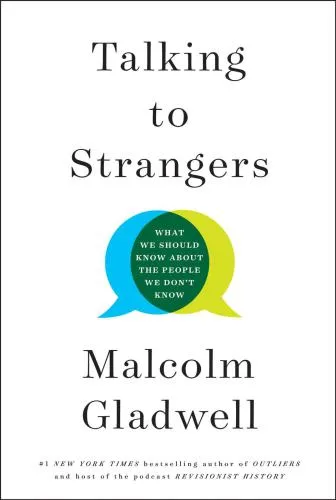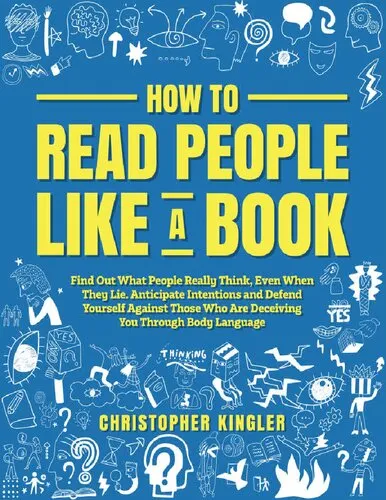Talking to strangers: what we should know about the people we don't know
4.0
Reviews from our users

You Can Ask your questions from this book's AI after Login
Each download or ask from book AI costs 2 points. To earn more free points, please visit the Points Guide Page and complete some valuable actions.Related Refrences:
In "Talking to Strangers: What We Should Know About the People We Don't Know," Malcolm Gladwell embarks on a profound exploration into the ways we interact with strangers. Through meticulously researched anecdotes and historical examples, he unravels the complexities of miscommunication and misunderstanding that often accompany these interactions. The book challenges readers to consider the assumptions we make about others and to reevaluate how we perceive strangers in our daily lives.
Detailed Summary of the Book
Gladwell begins by examining the nature of miscommunication, using the real-life arrest of Sandra Bland as a catalyst for discussion. This incident serves as a case study to highlight how easily interactions can go awry when assumptions are made about intentions and character. Throughout the book, Gladwell delves into various historical events, psychological studies, and real-world examples to illustrate how flawed our understanding of strangers can be.
One of the central themes of the book is the "default to truth" theory, a concept originally proposed by psychologist Tim Levine. Gladwell explains how humans are naturally inclined to believe in the honesty and transparency of others, an evolutionary mechanism that often misleads us, as evidenced by high-profile cases like those of Bernie Madoff and Jerry Sandusky.
The book weaves together a narrative that includes espionage cases, judicial decisions, and catastrophic failures of communication, such as the Munich Agreement and the trial of Amanda Knox. Gladwell's analysis reveals the systematic breakdowns in understanding that occur, examining the tools and assumptions we rely on to make sense of strangers, such as facial expressions, cultural norms, and past experiences.
Key Takeaways
- Humans have a strong tendency to "default to truth," which can lead us to misjudge others' intentions or sincerity.
- Miscommunication is compounded by the assumption that we can "read" strangers accurately through body language or facial cues.
- Context and culture play a significant role in how we interpret actions, often leading to misunderstanding and conflict.
- Understanding and addressing assumptions is crucial in improving communication, especially in cross-cultural or contentious interactions.
Famous Quotes from the Book
"We have to start by understanding the stranger as an individual." - Malcolm Gladwell
“The right way to talk to strangers is with humility and caution.” - Malcolm Gladwell
Why This Book Matters
“Talking to Strangers” is not just a book about miscommunication; it is a clarion call to reassess how we interact with the unfamiliar. In a world increasingly divided by race, politics, and ideology, Gladwell’s insights into the underlying mechanics of human interaction are both timely and necessary. The book serves as a reminder of the importance of empathy, patience, and perspective when bridging gaps between ourselves and those we encounter. Through thoughtful analysis and compelling narratives, Gladwell challenges us to refine our understanding and approach towards strangers, fostering a society that is more connected and less divided by fear and misunderstanding.
Free Direct Download
You Can Download this book after Login
Accessing books through legal platforms and public libraries not only supports the rights of authors and publishers but also contributes to the sustainability of reading culture. Before downloading, please take a moment to consider these options.
Find this book on other platforms:
WorldCat helps you find books in libraries worldwide.
See ratings, reviews, and discussions on Goodreads.
Find and buy rare or used books on AbeBooks.




